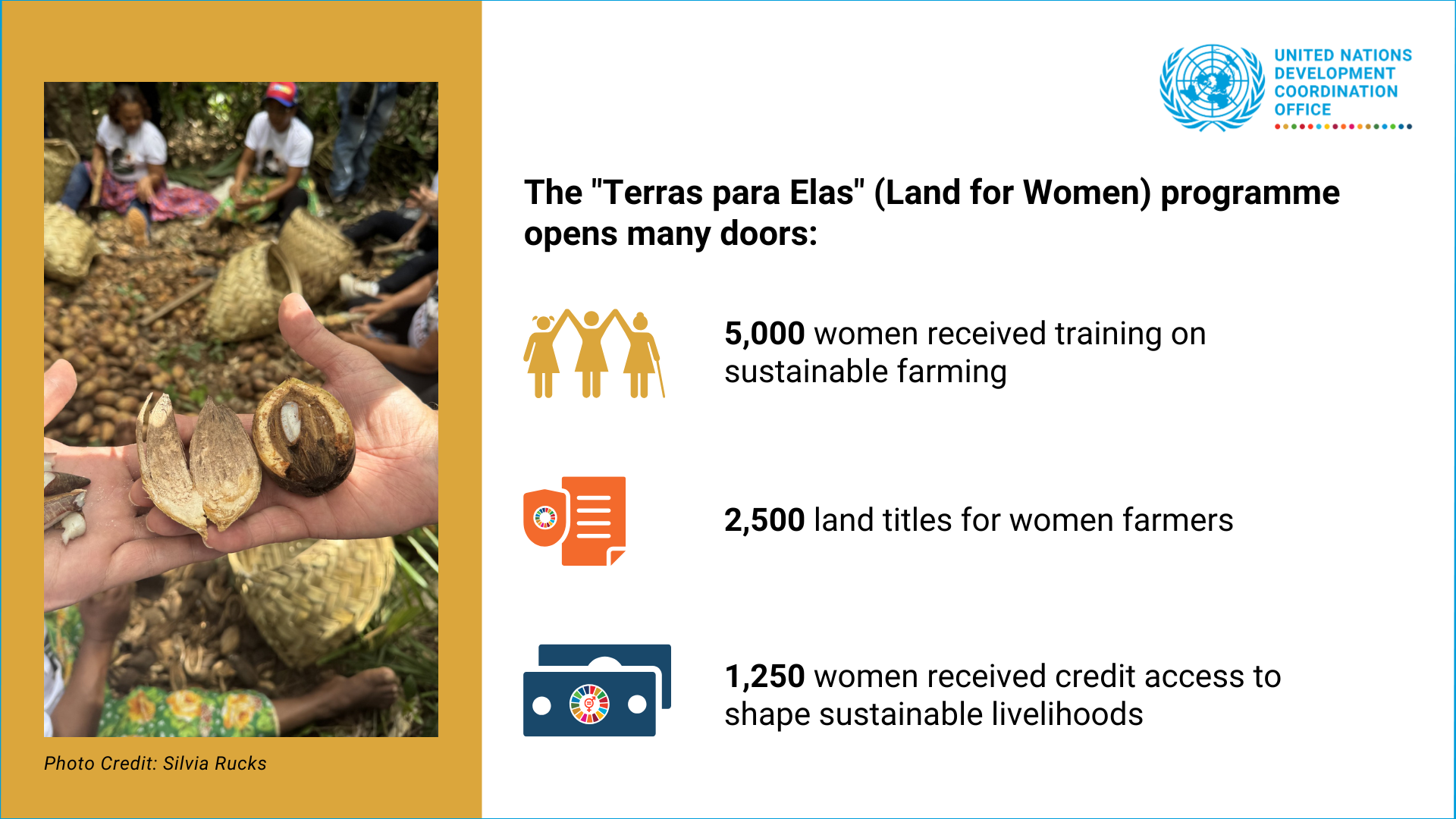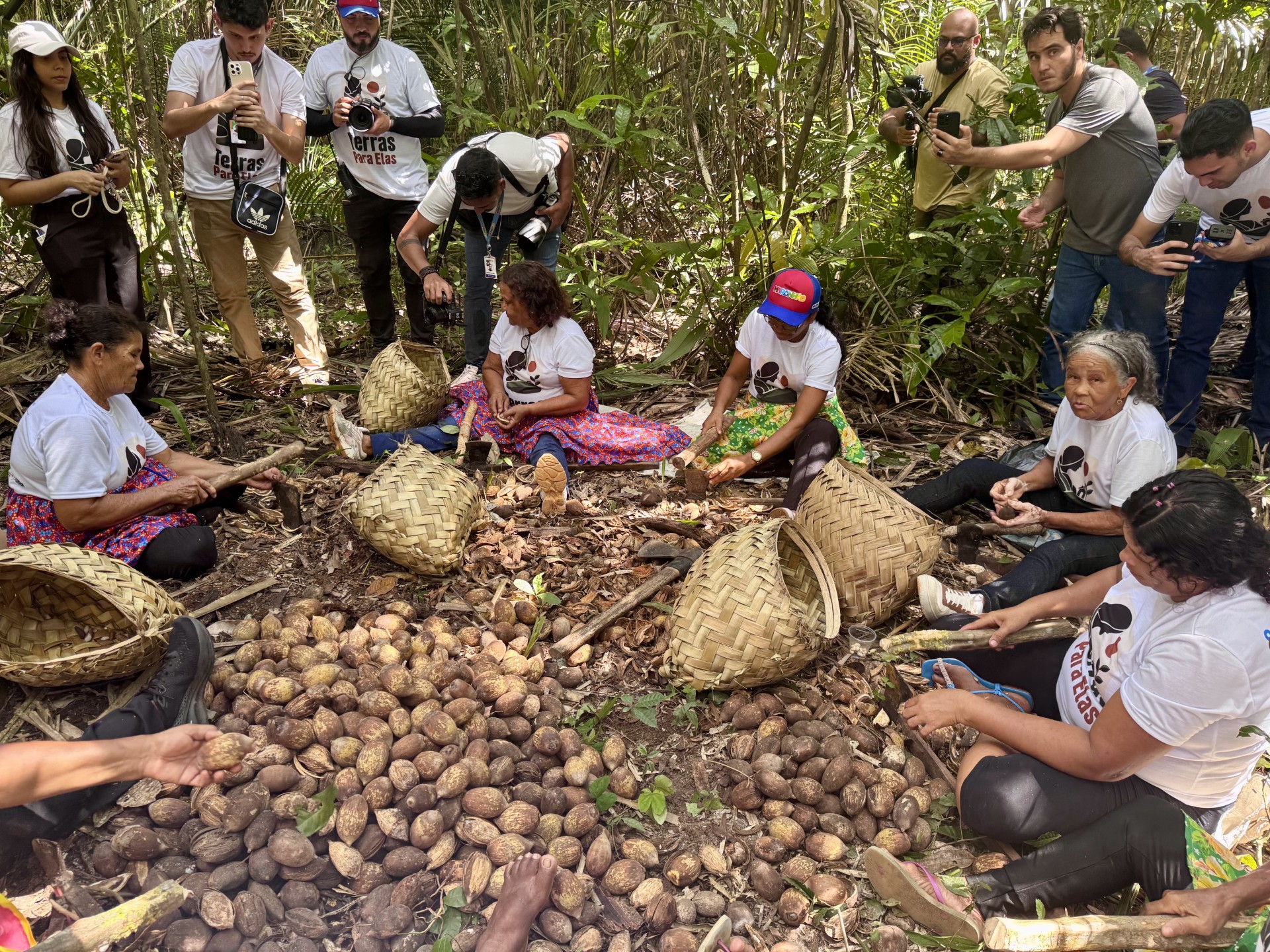A Journey through Hope: Witnessing Community-Led Change in the Amazon
With the Amazon at the crossroads of climate action, biodiversity, and inclusive development, UN Resident Coordinator in Brazil Silvia Rucks reflects on how community-driven solutions, backed by the Brazil–UN Fund with support from Canada, are fostering resilience, equity, and hope across the region.
When I first set foot in the Amazon, I was taken by its immensity, but not only the natural vastness that we usually recognize, what really impressed me was the realization that the Amazon is an intricate and seemingly infinite tapestry of life, culture, and challenges.
Home to over 29 million people, most of them in large cities, the region stands at a critical intersection: how to safeguard the environment while ensuring inclusive growth.
The United Nations in Brazil has made this a priority, supporting solutions that combine social inclusion with environmental sustainability.
From vision to action
The Brazil–UN Fund for Sustainable Development of the Amazon is the first of its kind in the country, and it required persistent coordination and diplomacy to bring to life. As Resident Coordinator, I worked with UN Country Team colleagues to design a way for international partners to support locally driven solutions, while ensuring alignment with Brazil’s national priorities. The Fund was established through extensive dialogue with federal and state governments, civil society, and development partners.
My role was to convene these diverse stakeholders, broker consensus around priorities, and secure the initial contribution from the Government of Canada that made the launch possible. I was supported by the Partnerships Officer in my Office, who helped build and sustain long-standing partnerships with the government, civil society, and international partners, as well as conducting secretariat functions for the Fund.
By mobilizing UN expertise across agencies, we ensured that the Fund is not only a financing instrument but also a platform for innovation and accountability, where results can be measured, shared, and scaled.

Turning commitments into realities
As part of my role in ensuring the quality of the initiatives from inception to implementation, I recently had the privilege of visiting the first three programmes funded by the Brazil-UN Fund for Sustainable Development of the Amazon. What I saw there went beyond programmes – it was transformative hope in motion.
In the heart of the Amazon Basin, a powerful collaboration led by UN Children’s Fund (UNICEF) and jointly implemented by UN Population Fund (UNFPA), UN High Commissioner for Refugees (UNHCR), UN Educational, Scientific and Cultural Organization (UNESCO), International Labour Organization (ILO), Pan American Health Organization (PAHO/WHO), International Organization for Migration (IOM), carves out a path for Indigenous children, adolescents, and young people. Even though the programme is still in its initial stages, seeing efforts unfold across eight of the nine Legal Amazon states, guided by a truly intercultural, gender-responsive approach, is profoundly moving.
In Acre, I met local partners co-creating a resilient future through bioeconomy, land governance, and environmental conservation. The project, led by the state government and UNESCO, takes place in two protected areas where artisans are turning forest products into value-added goods, building sustainable pathways to transform the local economy. I visited a nursery that produces thousands of seedlings from 50 tree species, which will later be used to restore degraded forest areas, combining cutting-edge technology with the commitment and knowledge of the local communities living there.
In Rosário, Maranhão state, I joined the launch of "Terras para Elas", or Land for Women, a project implemented by the state government and the Food and Agriculture Organization (FAO). For women farmers, especially quilombolas, Indigenous, riverside dwellers, babaçu nut breakers, and rural LGBTQIA+, this initiative opens doors: 2,500 land titles, sustainable training for 5,000 women, and credit access for 1,250. I watched empowered women claim their rights and shape sustainable livelihoods for their families and communities.
I also listened to one of the most heartfelt testimonials of my lengthy UN career. One woman told me that her community’s fight for the title to their ancestral land began with her grandmother. Her mother carried the torch on, and now, finally, her generation will see the recognition of their right to own their land and use it to ensure the livelihoods and the future of their families.
These visits underscored a vital message: solutions rooted in communities produce resilience. The many challenges facing the Amazon, such as deforestation, land insecurity, and social exclusion are palpable, but the Brazil–UN Fund shows us that we can catalyze change when initiatives are co-owned, locally led, and equity-driven.

Looking ahead: A shared vision for sustainable resilience
Walking through these territories, the human impact was undeniable: women reclaiming land rights, children embracing their cultures, communities conserving ecosystems with pride. All this is being built with one single contribution to the Fund, made most generously by the Government of Canada.
But there is room to scale up, replicate, and strengthen what is already working. If one donation could take us this far, I can’t help but wonder what we can accomplish if others join us. The Fund, backed by robust UN coordination and aligned with national policies, proves that multilateralism and intersectoral collaboration can engender meaningful change.
To governments and private companies: this is your moment. The Fund offers an entry point to empower vulnerable populations and to make real change. As we prepare for the climate negotiations in COP30, the first to take place in the Amazon, this is an opportunity to show your commitment.
I am filled with optimism. Together, we can amplify the impacts, bolstering inclusive governance, enhancing climate resilience, and ensuring that the Amazon remains a source of life for generations to come.
This blog was written by UN Resident Coordinator in Brazil Silvia Rucks. To read more coordination results from Brazil click here.













